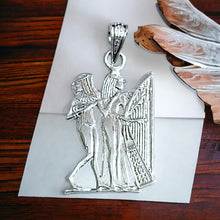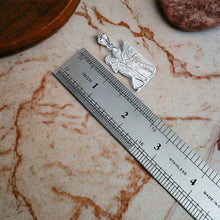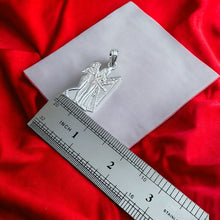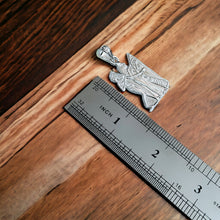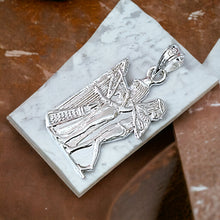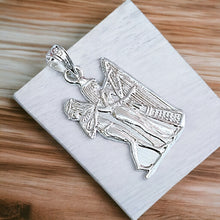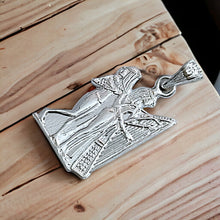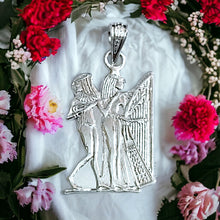
Silver Ancient Egypt's Musicians Pendant Necklace: Inspired by the harmonious melodies of ancient Egypt, this intricately designed pendant encapsulates the timeless allure of Egyptian musicians, echoing their cultural significance and artistic expression through the ages.
- History: Inspired by ancient Egypt's musicians, renowned for their spiritual significance and cultural legacy.
- Spiritually: Represents the harmony and mystique of Egyptian music, believed to connect with divine energies.
- Talisman: Crafted as a talisman for creativity, inspiration, and spiritual awakening.
- Handmade: Painstakingly crafted by skilled artisans, each pendant carries a unique touch.
- Healing: Believed to possess healing energies, promoting emotional balance and inner peace.
- Material: Made of sterling silver, known for its purity and association with lunar energies.
- Symbolism: Symbolizes the enduring legacy of Egyptian civilization and the power of artistic expression.
- How to Wear: Designed to fit any chain up to 5mm, offering versatility in styling and personalization.
History Side For Those Who Are Interested
The history of musicians in ancient Egypt is a captivating journey through a civilization deeply intertwined with music, spirituality, and daily life. Musicians held a revered position within Egyptian society, their artistry intertwined with religious ceremonies, entertainment, and even political events.
Ancient Egyptian musicians encompassed a diverse array of talents, ranging from instrumentalists to vocalists, dancers, and composers. The earliest evidence of music in Egypt dates back to the Predynastic period (c. 6000–3150 BCE), where depictions of musicians playing harps, flutes, and percussion instruments adorn tomb walls and artifacts.
During the Old Kingdom (c. 2686–2181 BCE), musicians played a vital role in religious rituals, accompanying hymns and prayers dedicated to the gods. They were often depicted in temple reliefs and tomb scenes, showcasing their importance in both sacred and secular contexts. Harps, lyres, and lutes were among the most popular instruments of the time.
The Middle Kingdom (c. 2055–1650 BCE) witnessed further advancements in musical techniques and instruments. Musicians began experimenting with new tonalities and scales, expanding the repertoire of melodies and compositions. The harp, in particular, reached new heights of popularity, becoming synonymous with Egyptian musical culture.
By the New Kingdom (c. 1550–1070 BCE), music had become even more ingrained in Egyptian society, with professional musicians organized into guilds and employed by temples, royal courts, and wealthy households. The royal courts of pharaohs such as Tutankhamun and Ramesses II were renowned for their extravagant musical performances, featuring orchestras comprising a variety of instruments and vocalists.
One of the most iconic instruments of ancient Egypt was the sistrum, a type of rattle used in religious ceremonies to invoke the blessings of the gods. Its distinctive sound was believed to have the power to ward off evil spirits and bring prosperity and fertility.
Musicians in ancient Egypt enjoyed a level of social status and respect commensurate with their talents. They received patronage from the royal court and nobility, and their performances were often accompanied by dancers, adding a visual spectacle to the auditory experience.
Despite the passage of millennia, the legacy of ancient Egyptian musicians endures, preserved in the archaeological record and celebrated in modern interpretations of their music and instruments. Their contributions to the cultural tapestry of Egypt continue to inspire awe and fascination, reminding us of the timeless power of music to transcend barriers and connect us to our shared human heritage.








